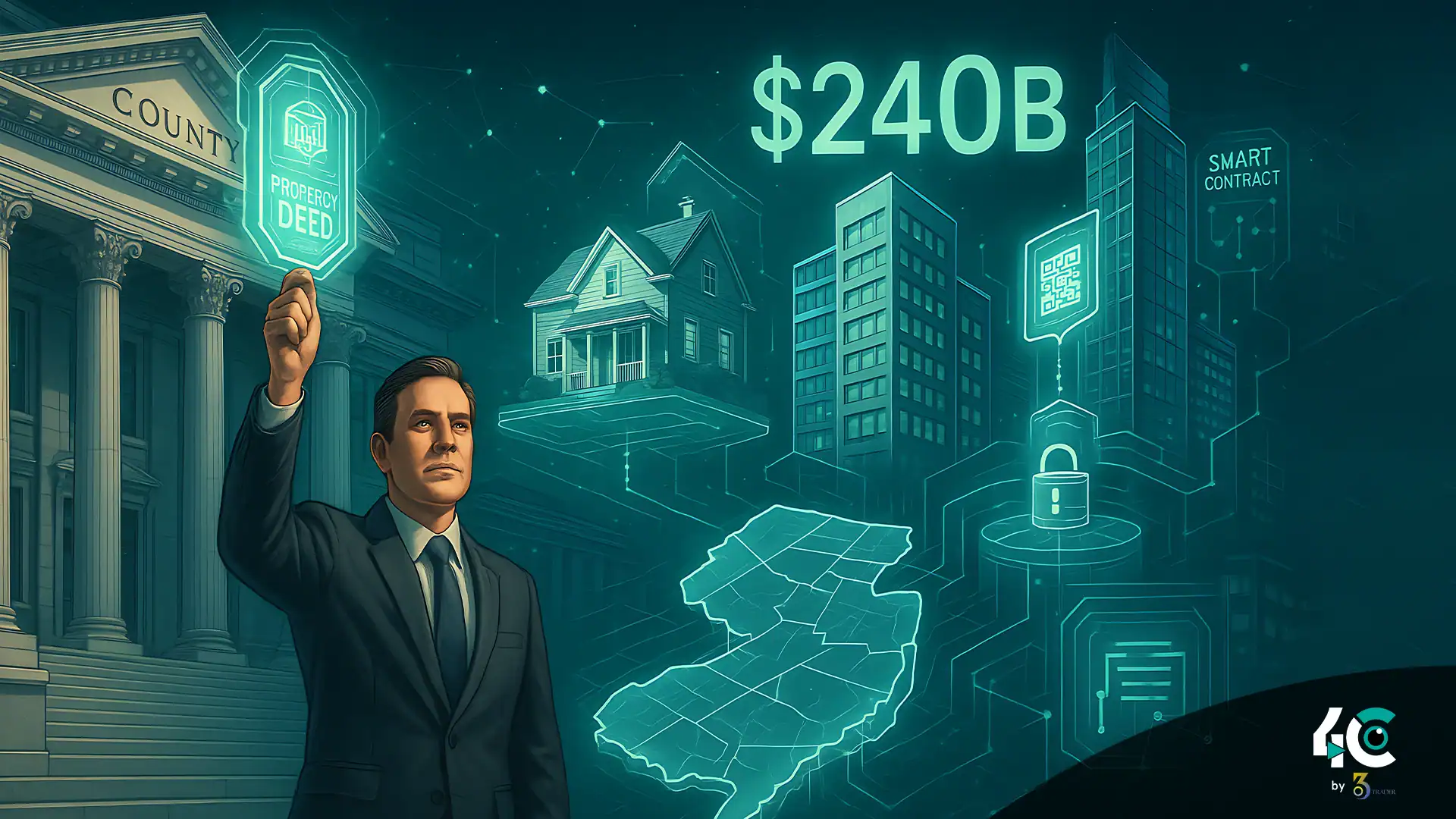In a historic leap toward modernizing public infrastructure, Bergen County, New Jersey, is set to tokenize 370,000 property deeds worth $240 billion using the Avalanche blockchain. The five-year initiative, developed in partnership with real estate tech firm Balcony DAO, marks the largest government blockchain recordkeeping project in U.S. history.
Under the agreement with the Bergen County Clerk’s Office, traditional paper-based property records will be uploaded to a secure, tamper-proof blockchain ledger, replacing outdated software systems. The system will drastically reduce administrative errors, fraud, and deed processing delays by more than 90%, according to Balcony.
“This is a game-changer for public infrastructure,” said Dan Silverman, CEO of Balcony. “We are showing how decentralized systems can improve government efficiency and better serve communities.”
Avalanche and Web3 in Public Infrastructure
The project is powered by Avalanche, a scalable blockchain known for its fast processing times and low transaction costs. It is supported by Blizzard, a venture capital fund focused on Avalanche-based innovation.
Bergen County collects over $500 million annually in property taxes, and the blockchain upgrade is expected to vastly improve internal operations. With cyberattacks on the rise, the county is looking to blockchain to provide long-term data security. In 2023 alone, 23 New Jersey municipalities were hit by ransomware, with recovery costs reaching as high as $1 million.
Officials compared the reliability of the system to India’s CoWIN program, but noted that Web3 technology offers even greater potential for public trust, accessibility, and data integrity.
Scaling Across New Jersey
The success of the initiative has already spurred interest in other New Jersey municipalities. Camden, Orange, Cliffside Park, Morristown, and Fort Lee are reportedly in discussions to adopt similar systems. In Orange, the pilot blockchain platform uncovered nearly $1 million in previously uncollected property taxes, proving its practical impact.
Statewide, 460,000 property deeds worth $290 billion are expected to be digitized soon. This aligns with the broader global trend of real-world asset (RWA) tokenization, where governments and institutions are bringing physical assets to the blockchain to enhance transparency, efficiency, and access.
With this ambitious rollout, Bergen County has become the first U.S. county to implement a blockchain property record system, potentially setting a precedent for nationwide adoption.



























